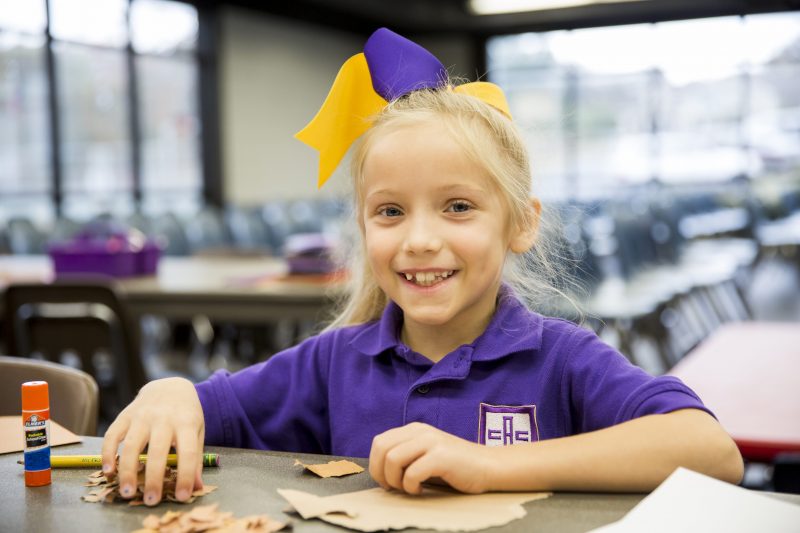Philosophy of Education
We believe that faith in God is the foundation of all wisdom and knowledge.

We believe each student is a unique creation of God. In order to achieve their God-given potential, students must acquire a strong grounding in fundamental academic knowledge and skills in a disciplined, challenging, and encouraging environment where we act toward others with kindness, respect, and compassion.
We believe that an education serves to help students to grow spiritually, intellectually, physically, and socially for their benefit and the benefit of society.
We believe an effective educational process involves a partnership between students, parents, teachers, administrators, and staff who are unified in a commitment to the school’s mission and primary objectives.
We believe communication between partners must be regular, direct, and characterized by respect and a common commitment to what is best for individual students and the entire learning community.
In addition to appropriate curricular and extra-curricular offerings, we believe successful pursuit of our mission is dependent upon faculty, administration, and staff who are role models, who are professionally qualified, who are genuinely concerned about children, who are committed to the values of the school, and who love God.
Goals
- Nurture an understanding of God’s love which inspires students to love God, to love others, and to see themselves and the world from God’s perspective;
- Encourage students to trust God and faithfully seek His will in their lives as they seek to develop an eternal relationship with Him through Christ;
- Provide clear moral and ethical standards based upon the biblical principles established by God to govern our lives;
- Model Christian values, joyful living, and a spirit of community;
- Cultivate a wonder for God’s creation and a love of learning;
- Teach and model self-discipline;
- Encourage and value creativity;
- Emphasize essential knowledge and skills for future learning;
- Equip students with effective reading and listening skills;
- Teach students to think critically;
- Teach students to write and speak effectively;
- Teach students the fundamental principles and laws of mathematics and science;
- Promote an appreciation of the arts and development of basic skills in music, visual arts, and theatre;
- Develop proficiency in a second language;
- Encourage the development of attitudes and habits for healthy living;
- Develop the basic skills and aptitude to use current and future technology;
- Equip students with an understanding and appreciation of our country’s history, government, economic system, and the duties of responsible citizens;
- Promote participation in activities which allow students to learn and develop through personal involvement (e.g. serving, competing and performing).

